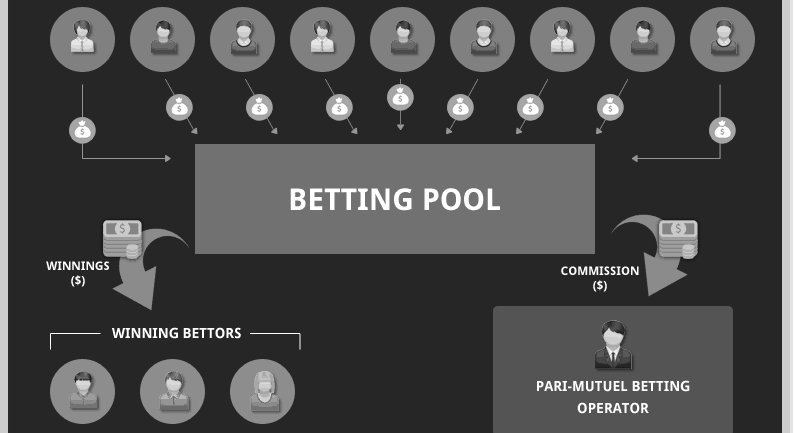Introduction:
In the realm of decision-making, the human mind is susceptible to various biases and fallacies that can lead to irrational choices. One such influential mental model is the Pari-Mutuel Systems, which has a profound impact on our day-to-day lives. Derived from the French term meaning “mutual betting,” this model originally emerged in the context of horse racing and gambling. However, its relevance extends far beyond the racetrack, permeating personal life decisions, business scenarios, and even public policy-making. Understanding the intricacies of the Pari-Mutuel Systems and the psychological underpinnings that drive it can help individuals make more informed decisions and avoid falling prey to its inherent fallacies.
Defining Pari-Mutuel Systems and Their Relevance:
The Pari-Mutuel Systems mental model is rooted in the idea of aggregating individual opinions, preferences, or bets to determine the likelihood of an outcome. Unlike traditional betting systems where odds are set by bookmakers, the Pari-Mutuel Systems dynamically adjust the odds based on the collective wagers placed by participants. This system acknowledges that the value or probability of an outcome is not fixed, but rather determined by the collective wisdom of the participants.
The significance of the Pari-Mutuel Systems lies in its ability to incorporate diverse perspectives and information from a wide range of individuals. By allowing the crowd to determine the odds, this model assumes that collective decision-making is more accurate and efficient than individual judgments alone. However, while this assumption holds merit in certain circumstances, it can also lead to irrational decision-making when psychological biases come into play.
Occurrences of Pari-Mutuel Systems in Various Contexts:
Personal Life Decisions:
Consider a scenario where a person is contemplating which career path to pursue. The individual seeks advice from friends, family, and mentors, treating their opinions as valuable insights for decision-making. However, if the person solely relies on the most frequently recommended path, without critically evaluating each option, they may fall victim to the Pari-Mutuel Systems. By giving undue weight to popular opinions, they neglect to consider their own unique skills, passions, and circumstances, potentially leading to a career choice misaligned with their true aspirations.
Business Scenarios:
Businesses often conduct market research and customer surveys to gauge consumer preferences and make strategic decisions accordingly. If a company solely relies on aggregated customer feedback to develop new products or services, without considering other factors such as market trends or technological advancements, they may succumb to the Pari-Mutuel Systems. By blindly following the crowd’s preferences, businesses risk missing out on innovative opportunities or catering to a changing market, leading to stagnation and diminished competitiveness.
Public Policy-Making:
In democratic societies, public opinion plays a crucial role in shaping policies and political decisions. However, when policy-makers exclusively base their decisions on public sentiment without thorough analysis or expert advice, they can fall into the trap of the Pari-Mutuel Systems. The sway of public opinion may overshadow well-reasoned strategies or evidence-based approaches, resulting in policies that may not align with long-term societal interests or address complex issues adequately.
Mental Biases and Psychological Underpinnings:
The occurrence of Pari-Mutuel Systems is fueled by several cognitive biases, such as herd mentality, availability heuristic, and confirmation bias. Herd mentality describes the tendency of individuals to follow the crowd, assuming that collective wisdom is more accurate than individual judgment. Availability heuristic leads people to overestimate the likelihood of events based on how easily they come to mind, which can be influenced by the opinions of others. Confirmation bias reinforces pre-existing beliefs by selectively seeking information that confirms one’s initial viewpoint.
Additionally, social validation and the fear of missing out (FOMO) contribute to the prevalence of Pari-Mutuel Systems. Humans have an innate desire to conform and seek validation from others, often leading them to align their choices with popular opinion. This desire, coupled with the fear of missing out on potential rewards or opportunities, can override critical thinking and lead to irrational decision-making.
Identifying and Avoiding Pari-Mutuel Systems:
To prevent falling prey to the fallacies of Pari-Mutuel Systems, it is essential to cultivate self-awareness and critical thinking. Here are some strategies to consider:
Question consensus: Instead of blindly accepting popular opinions, challenge them by seeking diverse perspectives and conducting independent research. Consider the strengths and weaknesses of each option before making a decision.
Assess individual context: Recognize that your situation, goals, and preferences may differ from those of others. Avoid making decisions solely based on collective wisdom and consider personal factors that are unique to your circumstances.
Beware of cognitive biases: Familiarize yourself with common biases that influence decision-making, such as herd mentality and confirmation bias. By understanding these biases, you can actively counteract their effects and make more objective choices.
Seek expert advice: While collective opinions can provide valuable insights, consult experts or individuals with specialized knowledge in the relevant domain. Their expertise can offer a balanced perspective and help mitigate the risks of solely relying on crowd wisdom.
Conclusion:
The Pari-Mutuel Systems mental model illustrates the fallacy of collective decision-making when individuals unquestioningly follow popular opinions or consensus. By understanding the psychological underpinnings and biases that contribute to this phenomenon, individuals can navigate decision-making processes more effectively. By challenging the crowd, considering personal context, and being mindful of cognitive biases, individuals can avoid the pitfalls of Pari-Mutuel Systems and make more informed choices aligned with their best interests. Ultimately, fostering awareness and actively avoiding this mental trap empowers individuals to lead more purposeful and independent lives.
